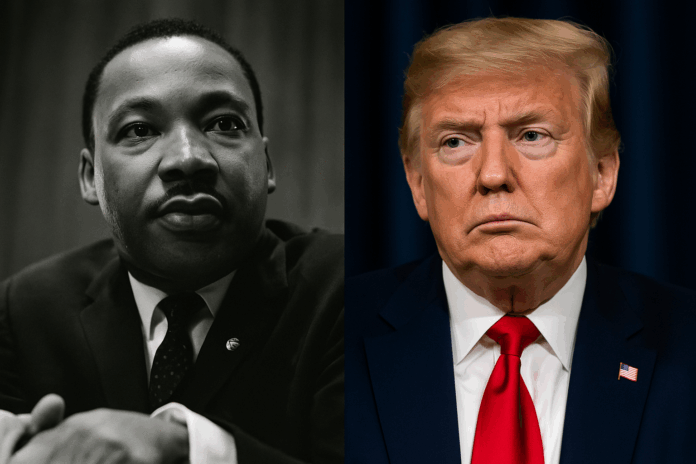A presidential decree, a deluge of documents, and the ghosts of a nation’s past, on July 21st, 2025, the Trump administration released over 230,000 classified pages related to the assassination of Martin Luther King Jr. The scale is unprecedented, the timing precise, and the intentions, despite the rhetoric of transparency, raise more questions than they answer.
A Political Gesture Dressed as Justice
Signed on January 23rd, 2025, Executive Order 14176 ordered the full release of classified files concerning the assassinations of John F. Kennedy, Robert F. Kennedy, and Martin Luther King Jr. By mid-July, tens of thousands of these long-sealed documents, housed in the National Archives since 1977, finally became public.
National Intelligence Director Tulsi Gabbard framed the move as “a long-overdue step toward total transparency.” But such phrasing clashes starkly with the decades of state silence that preceded it. Why now? Why under Trump, and why in the midst of mounting pressure on other fronts, Epstein, Ukraine, covert intelligence operations?
The context, rather than the content, reveals the core logic: a show of righteous openness that serves a deeper agenda, to reclaim control over historical narrative and, perhaps, to distract from far more current scandals.
What the Files Actually Contain
Far from explosive, the documents reaffirm much of what was already suspected. The FBI, under the infamous J. Edgar Hoover, engaged in relentless surveillance, psychological harassment, and character assassination against MLK, including attempts to drive him to suicide.
Some files trace James Earl Ray’s transatlantic flight, Canada, Portugal, London, and raise questions about how a man of his background could maneuver so freely. Others include prison testimonies, notably from one of Ray’s fellow inmates, hinting at a broader network behind the killing.
There are no smoking guns, no formal admissions. But there are enough scattered details, uncensored memos, intercepted communications, shadowy logistics notes, to nourish long-held suspicions: that King’s death was not the act of a lone racist, but something altogether more orchestrated.
The King Family: Grief, Suspicion, and a Warning
The late civil rights leader’s children, particularly Martin Luther King III and Bernice King, reacted swiftly. In a public statement, they welcomed the release but warned against its instrumentalization, namely, using these records to manipulate their father’s legacy or to rewrite history in the service of political opportunism.
Their message was clear: they do not believe James Earl Ray acted alone. In fact, in 1999, a Tennessee jury ruled in a civil case that King’s assassination involved a conspiracy with “governmental agencies” complicit. This conclusion was ignored by federal authorities then, and remains pointedly absent from current official narratives.
When Too Much Transparency Hides the Truth
One of the oldest tricks in political bureaucracy is volume: drown the truth in paper. The 230,000 pages dumped online form a vast and often incoherent mass. Few journalists, and even fewer historians, have the resources to comb through such a mountain of data without institutional support.
This is not openness, it’s obfuscation by saturation.
Yet, for those who do dig deep, strange details emerge: mentions of “lodging coordinators” with ties to intelligence agencies, internal warnings that Ray “wasn’t meant to survive extradition,” and CIA letters referencing “operational assets in Memphis” mere weeks before the killing. Each is a breadcrumb in a maze, plausibly deniable, yet hauntingly suggestive.
The Fight for History Is Always Political
What Donald Trump did with the MLK files wasn’t just declassification, it was narrative management. In presenting himself as the president who lifted the curtain on American history’s darkest chapters, he attempts to claim a mantle of moral clarity. But the gesture is hollow when not accompanied by genuine reckoning.
This release serves, in reality, a political logic: to distract, to claim ground in the culture wars, to muddy current scandals with a flood of righteous noise about past crimes.
And still, the question lingers: Who benefited from MLK’s assassination? Cui bono? It remains easier for the American state to dump a quarter-million pages into cyberspace than to admit that power, in all its forms, will always act to preserve itself, even, if necessary, by silencing the inconvenient voices of moral clarity.



